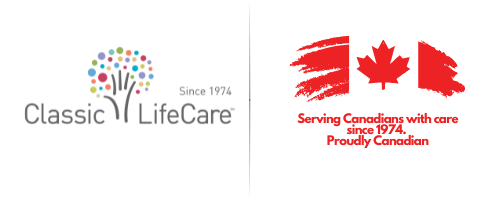Pressure Injury and Ulcer Prevention

What is a pressure injury?
A pressure injury is damage to the skin caused by constant pressure or friction. Pressure injuries may occur in people with reduced mobility or who are confined to sitting or lying for long periods of time.
Pressure on the skin and tissues is one cause of pressure injury, along with:
- Shear force: sliding down in a bed or chair, which can cause the skin to fold over itself
- Friction burns: being pulled across bed sheets or other surfaces
- Excess moisture, such as sweat, urine, or feces. Skin that is often wet is more likely to break down and form pressure sores.
What are the signs and symptoms of a pressure injury?
- Redness or changes in skin colour
- Swelling
- Tear in the skin or open areas
- Drainage
- Changes in the temperature of the skin
- Pain or tender area
Where on the body are pressure injuries most likely to develop?
- Pressure points are more common on areas of the body where bony prominences are likely to put pressure on the skin when pressed against the surface.
- While pressure injuries are not limited to certain body parts there are more common places on the body where pressure injuries form.
- These places include:
- Elbows
- Tailbone
- Back of the head
- Ankles
- Inner knees
- Buttocks
- Heels
- Lower back
- Shoulders
- Ears
- Hips
What are the risk factors for developing a pressure injury?
- Decreased mobility
- Poor nutrition
- Altered mental state
- History of skin breakdown,
- Age – thinning and fragile skin
- Exposure to moisture – incontinence, increased sweating
- Poor circulation
- Diabetes
What external factors contribute to the risk of developing a pressure injury?
- Improper use of equipment
- Restraints
- Rough clothing and bed sheets
How do you prevent pressure injuries?
- Assess skin daily and monitor changes in the skin including the development or worsening of pressure injuries.
- Turning and repositioning – repositioning shifts the body pressure points and relieves the risk areas. Use a device to enable positioning such as bed rails, transfer boards etc.
- Relieve pressure from bony prominences by using pillows, foam wedges, roho cushions, heel boots etc.
- Manage moisture (urine, feces, perspiration, wound drainage, and saliva) by changing incontinence products, wet or damp clothing, or bedding immediately.
- Apply a barrier cream.
- Assist individuals who are able with approved range of motion (ROM) exercises.
- Minimize shearing and friction on the skin when providing care or moving the client by using caution, observing, and responding to clients’ cues indicating skin discomfort.
- Manage moisture by changing incontinence products, wet or damp clothing, or bedding immediately.
- Get nursing support when you see the signs of pressure injuries. They can recommend the appropriate equipment and skincare product.
What to do if you notice a pressure injury?
- Take steps to prevent the injury from worsening and ensure the appropriate medical attention.
- Call a nurse from Classic LifeCare immediately.
- The nurse will perform an assessment and, if necessary, will refer to the family doctor, the community wound care nurse, or the Occupational Therapist.
- Change the individual’s position every two hours so the developing ulcer doesn’t worsen.
- Change incontinence pads immediately and gently clean and dry the skin. Check skin folds for skin breakdown.
- Assess regularly for signs of wound infection
Who is Classic LifeCare and what services do they offer?
Classic LifeCare is a family-run home care agency who have almost 50 years of experience caring for Western Canada. We serve Vancouver, Calgary, Prince George, Comox Valley, and their surrounding areas. Whether you require a few hours of care per month or 24-hour support, Classic LifeCare is here to help you. We are passionate about home care and seeing clients thrive in their own homes. We offer home care support for all generations including seniors, pediatrics, and all age groups in between.
Our services include personal care, nursing support, complex care, end-of-life care, 24-hour support, foot care, pediatric care, housekeeping, and companionship. Our care team comprises of Registered Nurses, Licensed Practical Nurses, Health Care Aides, Companions, and Housekeepers.
Call Classic LifeCare today for home care support: Contact Classic LifeCare
Citations:
Pressure Injuries (Bedsores): Symptoms, Treatment & Prevention (clevelandclinic.org)
Bedsores (pressure ulcers) – Symptoms and causes – Mayo Clinic

